‘It’s in our DNA:’ How Irish talent keeps turning Hollywood green
From Barry Keoghan to Paul Mescal and Best Actor nominee Cillian Murphy, Ireland keeps turning out award-winning talent and filmmakers – as its industry goes from strength to strength. So just what is it about the Irish and their storytelling ways, asks Sheila Flynn?
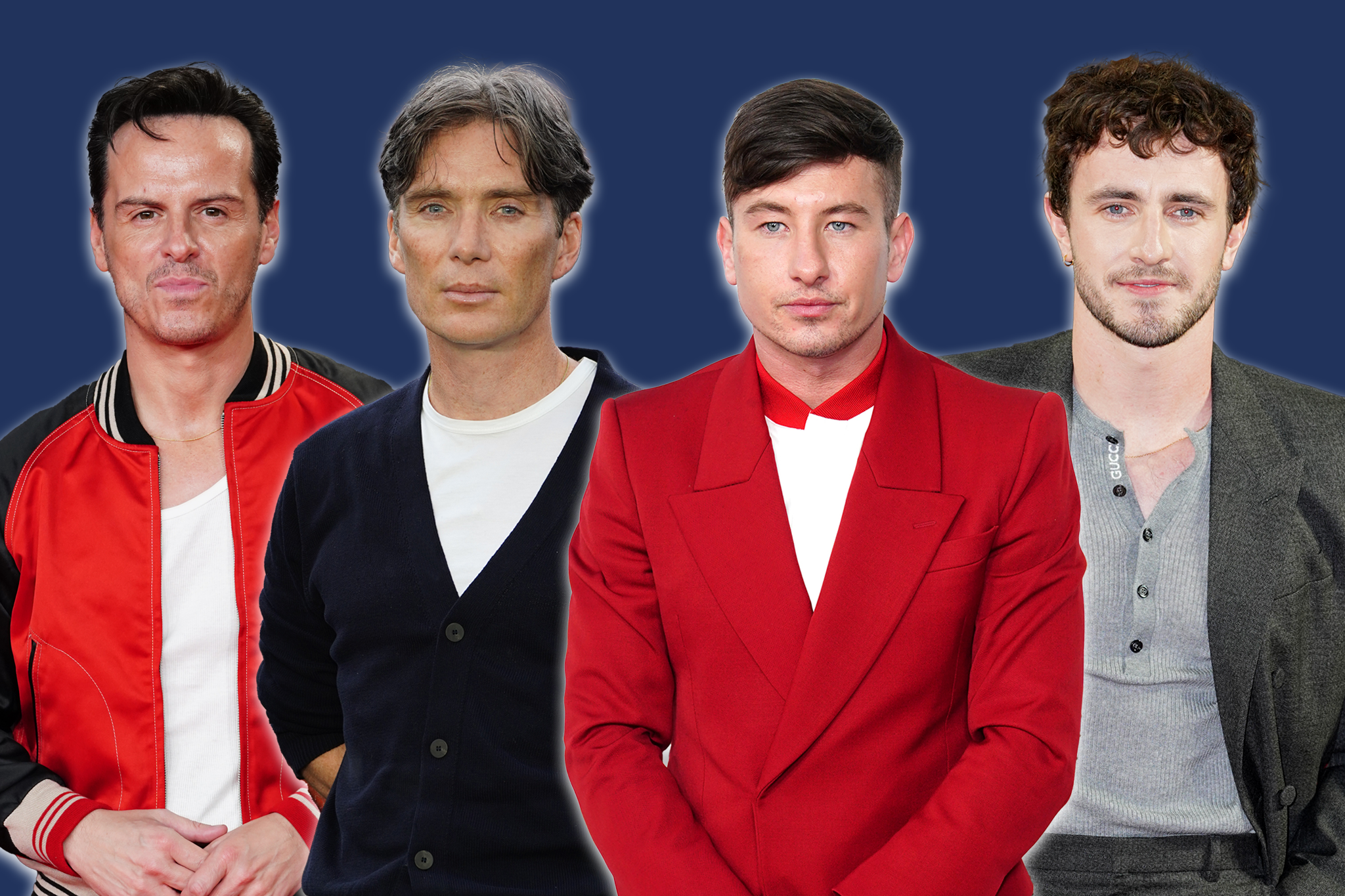
The Uber driver’s ears perk up when he hears the destination is a pre-Oscars event in Santa Monica celebrating Irish film and talent. He’s Puerto Rican, he says, but spent three weeks in Ireland right before the Covid shutdown – waxing lyrical about the pubs, the music, the culture, and the bus tour he took of the Game of Thrones filming locations in the country’s north.
Then he pulls up to the curb at Santa Monica production company Bad Robot, owned by filmmaker JJ Abrams of Star Wars fame, where a green carpet has been laid out for the arrivals of Ireland’s on- and off-screen industry heavyweights. They’re here for the Oscar Wilde Awards, an annual celebration of Irish film and talent hosted by the US-Ireland Alliance honouring big players, facilitating networking and essentially functioning as a big “party with a purpose” during the Irish-American Heritage Month of March.
If the past few years are anything to go by, the Irish certainly have a reason to party. Not only does Ireland boast a Best Actor nomination for Cillian Murphy’s Oppenheimer performance, but half the Golden Globe nominees in the same category were also Irish (including Murphy, who ultimately won.) The other names read like a Google Trends search for Hollywood It-boys: Barry Keoghan. Paul Mescal. Andrew Scott.
On top of that, last year Ireland hit a record 14 nominations at the Academy Awards, including the first ever for an Irish-language film.
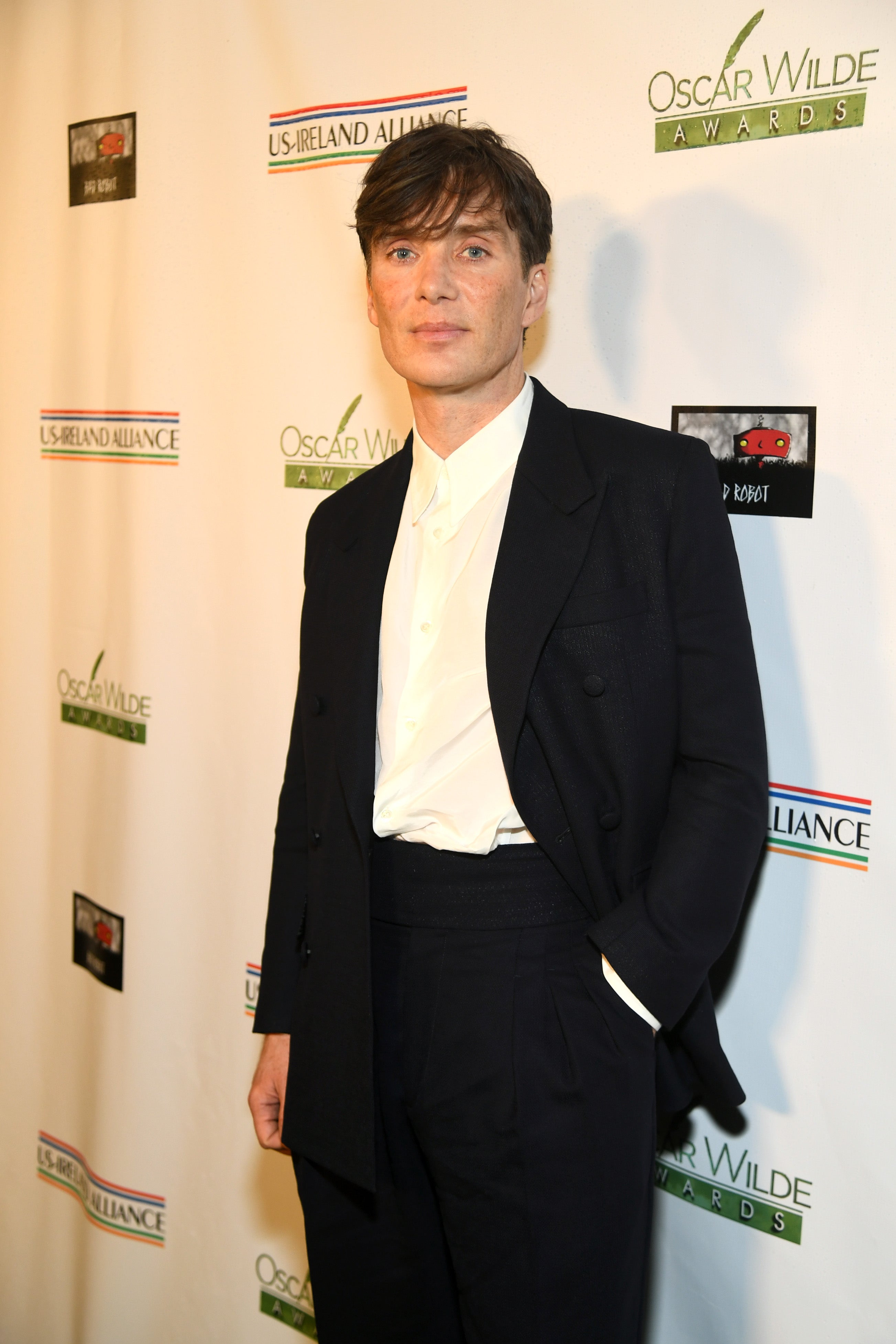
“We have such a strong representation here for such a small country, and it’s kind of unique and something we should be very proud of, I suppose,” Murphy tells The Independent as he endures the green carpet at the Oscar Wilde Awards. The 47-year-old actor, known for arguably the most arresting eyes in the industry, looks like he’d rather rake them out of his head than face more media– but turns thoughtful when musing on the international success of Irish showbusiness.
Storytelling and performance, Murphy says, are “part of who we are.
“It just seems to be part of our DNA,” he adds.
That’s certainly being celebrated in full force at Thursday’s party, when director James Cameron presents an Oscar Wilde Award to Dubliner Richie Baneham, the two-time Academy Award-winner for visual effects who’s worked with him for 18 years. Touched by an Angel actress Roma Downey, who hails from Co. Derry, presents the second award of the night to Pierce Brosnan, the first Irish Bond. And generational Irishness gets recognized with an award for Saturday Night Live alum Molly Shannon, who can trace her ancestry back to seanchai, the traditional Irish word for storyteller/historians.
It is, there seems, something to Murphy’s mention of DNA. Just ask anyone at the awards or, apparently, anywhere else (from the aforementioned Uber driver to the Irish ambassador, who earlier in the day spoke passionately about the role of the arts in Ireland’s global presence at a garden reception at the LA residence of the consul general.)
“If you look back at the tradition in Ireland, and the high regard that the storyteller was held in, and the seanchai, that’s always been there and I think it’s still there,” Traolach O’Riordain, director of Irish Studies at University of Montana – and a fellow native of Murphy’s Co. Cork – tells The Independent.
There’s a long and continued cultural tradition, he says, of “taking a story, and … they’ll embellish it, and they will introduce all kinds of different elements into it, to make it entertaining and memorable.” (He appropriately throws in multiple dialogue-laden anecdotes while making this point).
The Montana academic’s colleague, Erin Costello Wecker – an East Coast-raised Irish-American and associate professor of English & Irish Studies – takes it a step further.
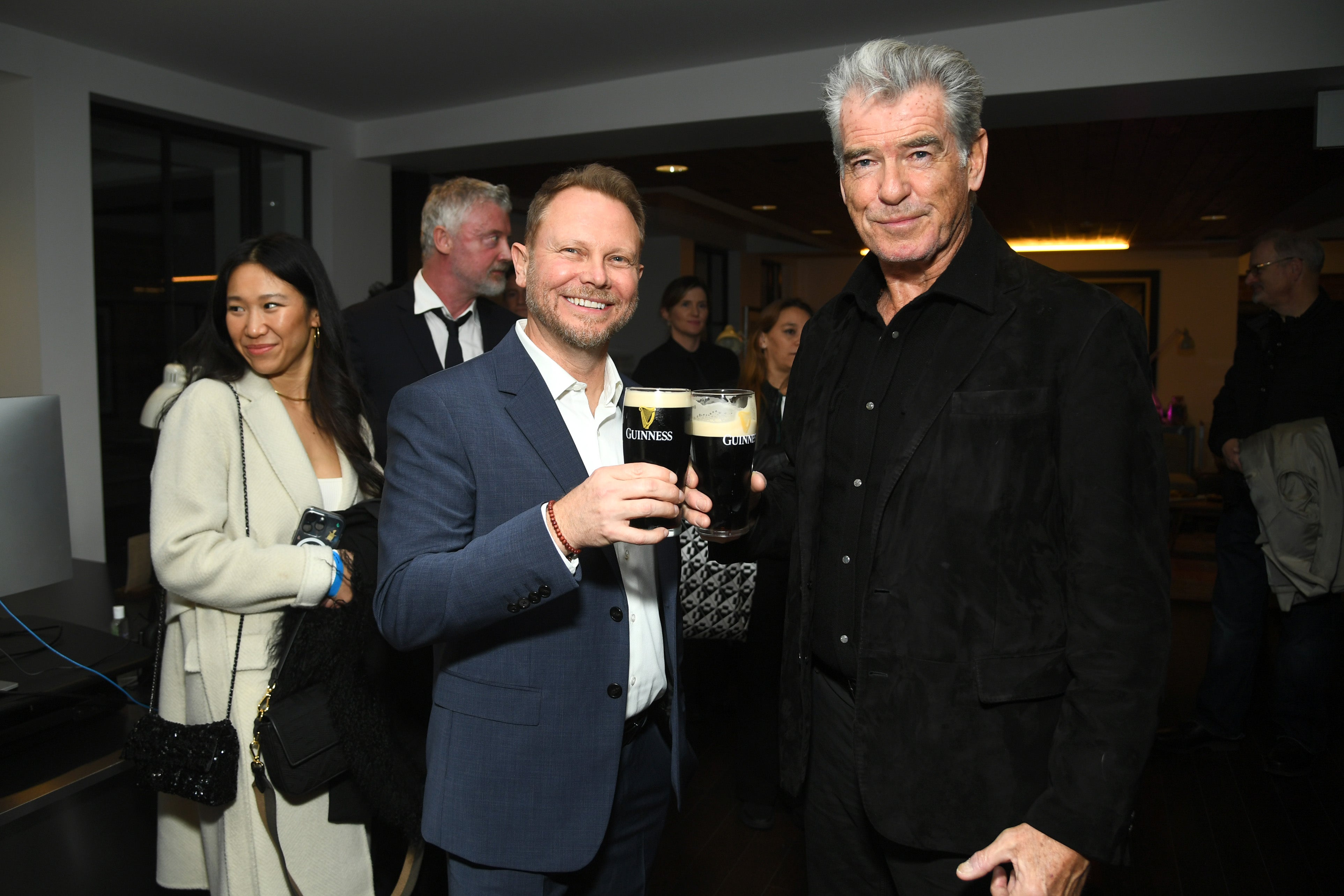
“Part of what I think that we’re witnessing right now, we’re living through, is the storytelling and the really lyric talent that we’ve always thought of In Ireland – so not just Yeats and Joyce and those heavy-hitters, but thinking of somebody like a contemporary women’s writer like Edna O’Brien … it’s unpacking a lot of those movements and putting them in front of new audiences.
“A lot of, I think, the reintroduction or the openness to have Irish cinema as a bedfellow is building on that literary and musical tradition that people globally are aware of and respect,” she says.
There have also been decades of shrewd, sustained and strategic investment in the film industry by the Irish government, which has banked – successfully – on the power of its talent and cultural tradition.
In 1993, Ireland’s now-President, Michael D. Higgins, became the country’s first Minister for Arts, Heritage and the Gaeltacht, re-establishing a formerly short-lived Irish Film Board and ushering in tax incentives, training schemes and other developments that laid the groundwork for future growth. He was instrumental in Braveheart taking advantage of those incentives one year later and filming on the island; the production was a phenomenon and “set the standard and trend for major studios to film in Ireland in the years that followed, providing the ultimate training ground for many of the now leading Irish filmmakers and craftspeople,” the Irish Film and Television Academy explains on its page outlining Higgins’ award for outstanding contribution to the industry.
Incentives and commitment have remained, combining with a variety of other influences to fuel Irish film’s continued growth, Screen Ireland spokeswoman Louise Ryan tells The Independent.
“As a small island and a small nation, we’ve always had to look out internationally, so we’re very good at co-production, we’re very good at working with international partners, and our producers have always had to raise international financing for their projects across animation, film and television,” she says. “That experience, you can see it, and if you’re working in Ireland, you’re working with a safe pair of hands, in many ways. … People want to come back; they have a good experience here.”
In 2021, Screen Ireland established an office in Los Angeles, installing a Head of US Production & Partnerships “to support the Irish creative screen sector and strengthen US-Ireland relationships between the Irish screen industry and the US entertainment industry,” it announced.
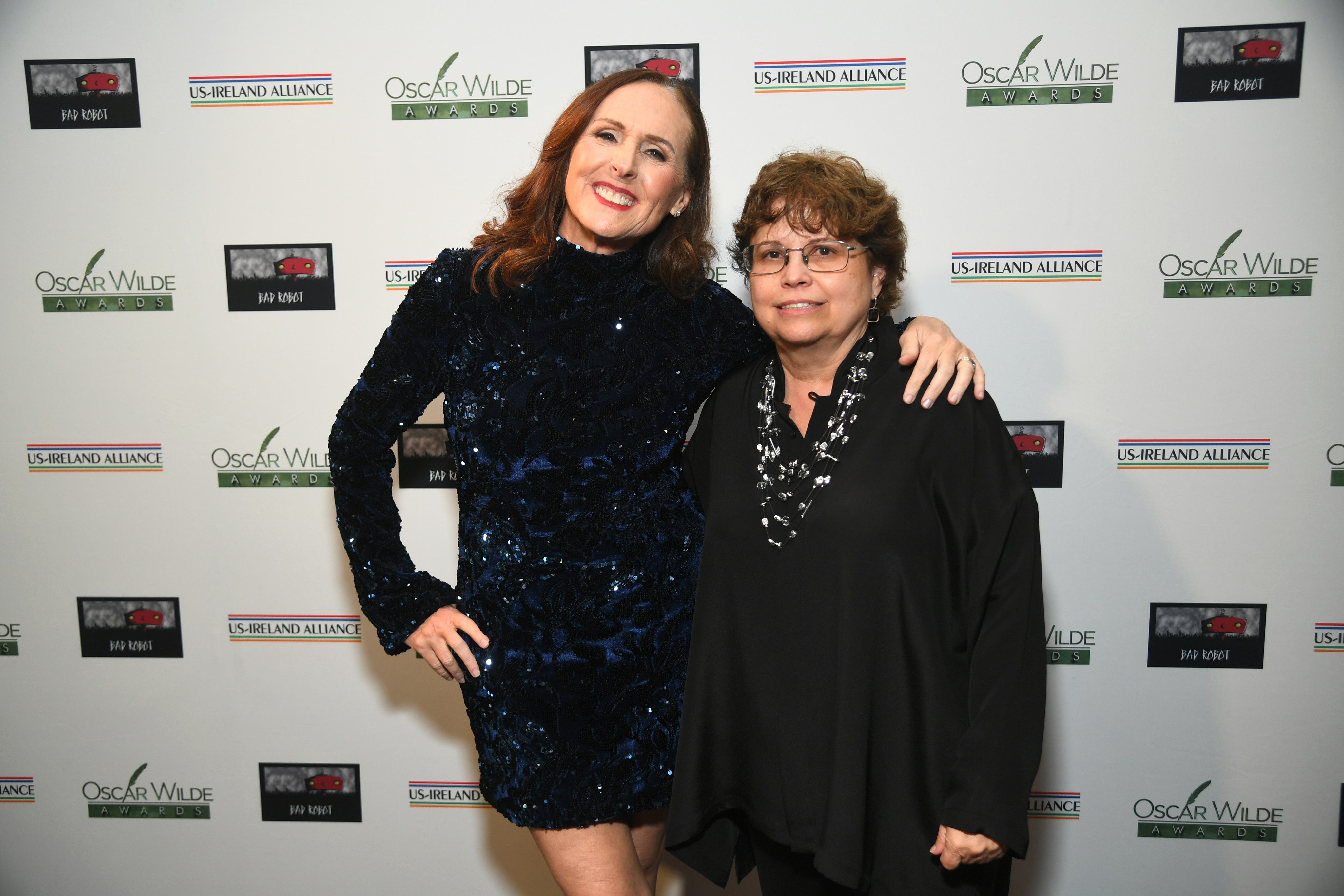
On top of that, there’s been a continued, solid emphasis on training and upskilling, including the opening of five talent academies across Ireland for film, television, animation and crew.
“Screen Ireland have worked to ensure we’ve linked our tax incentives to very strong investment in skills, and we’re certainly one of the leading countries to do that,” Ryan says. “All crew are being invested in for each project. All our projects have to do a skills plan.”
The multi-pronged initiatives have grown exponentially in the decades since Oscar winner Richie Baneham, who grins from ear to ear as he accepts his Oscar Wilde Award, enrolled at a new animation course at a Dublin vocational college after his mother saw an ad in the paper.
He’d already left school at 14 and was working on the railways, he says, adding that hoped his story “inspires young kids to take up the craft or at least look at the possibility.”
Up until then, he “obviously didn’t see a road to making art a living at that point. It just wasn’t in the cards.”
Now he’s being introduced by Cameron and has two Oscars under his belt; half the other animation students he graduated with also live and work “within a mile of where I am” in LA, he says; there are around 14 children between the families.
“Building community is a big part of it,” he tells those gathered in Santa Monica.
It’s part of the reason the annual celebration of Irishness was implemented in the first place. Trina Vargo, a foreign policy adviser for Ted Kennedy during the 1990s Irish peace process negotiations, began the US-Ireland Alliance in 1998 and implemented the awards eight years later to promote Ireland’s industry and broaden its network, she tells The Independent.
“It’s very easy for people to just think, ‘Oh, a party in LA, frou frou,’” Vargo says. “But it’s more than that. It’s about getting people in the room and then creating opportunities … I’m delighted every time somebody gets back to me and says, we’re doing this movie in Ireland, and I met him at your event.”
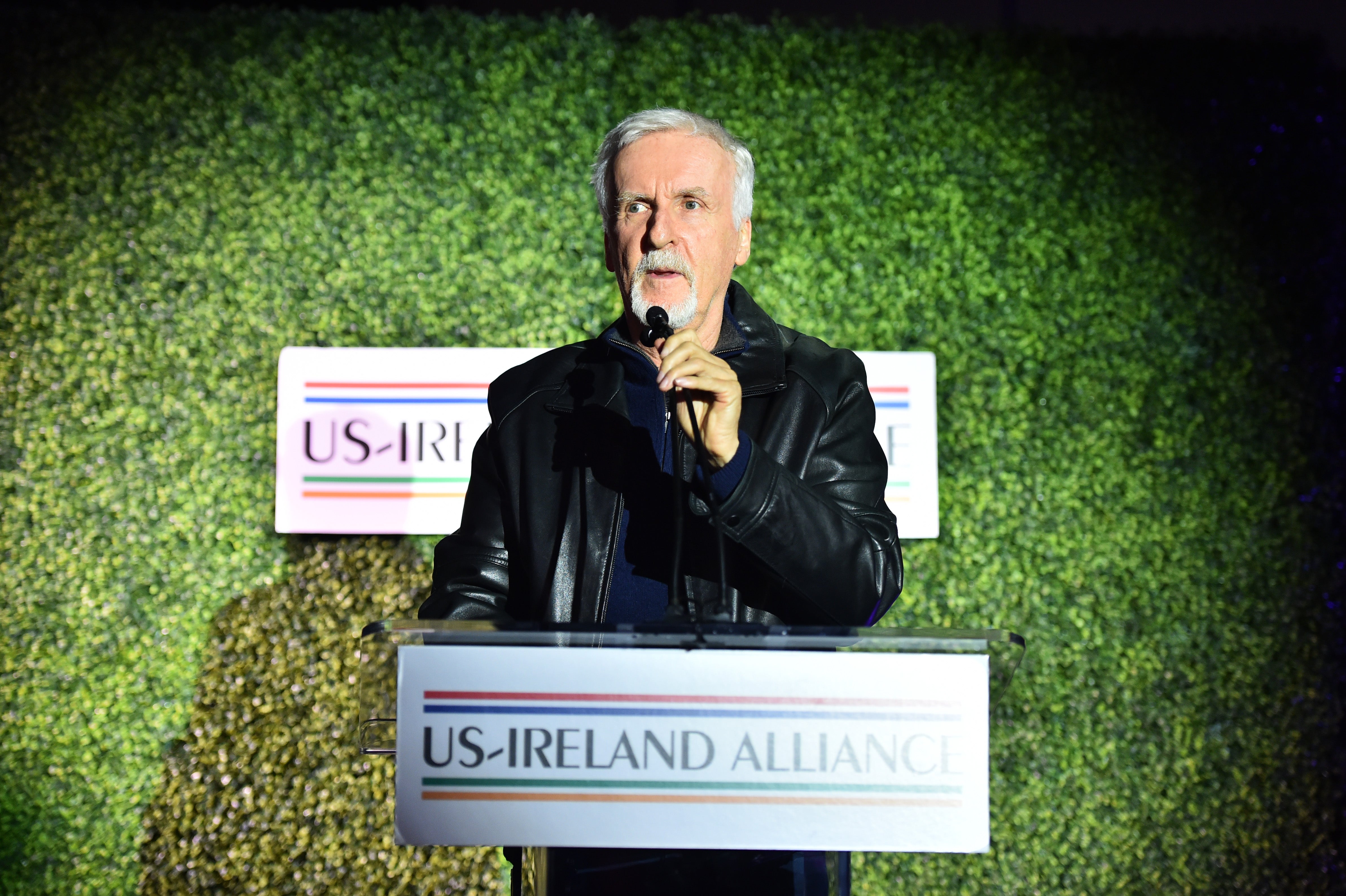
Abrams – who missed this year’s awards after coming down with Covid, along with his Irish-American wife – has credited the event and Vargo with influencing his decision to film Star Wars in Ireland.
The organiser still points to the national inclination of the island’s natives themselves.
“The Irish have been very successful – and I hate to say punch above their weight, because it’s so overused – but the Irish have been so successful in the artistic space that it’s infectious,” she says.
That’s certainly the vibe as Irish actors and filmmakers hobnob with international counterparts at Abrams’ offices, snacking on fish and chips and shepherd’s pie while drinking Guinness with executives from Disney, Sony, Paramount and other studios. Dublin band VNXI entertains revellers at the downstairs open-air bar, actors like Aisha Tyler and Donal Logue looking on during the event sponsored by Northern Ireland Screen, Screen Ireland and Studio Ulster .
The awards anointed Abrams an honorary Irishman in 2010; Vargo jokes that another newly-minted ‘Irish’ actress – The Bear’s Ayo Edebiri, who’s good-naturedly keeping a long-running joke afloat about her (non-existent) Irish ancestry – will have to be added to the future list.
“She’s already committed to something this year, I already checked her calendar!” Vargo laughs, adding of the awards: “It’s about sort of not taking yourself too seriously, having fun with it.”
In the meantime, Ireland – and probably its adopted daughter Edebiri, as well – will be holding its collective breath to see if Murphy becomes the first Irish-born man on Sunday to win the Oscar for Best Actor. (Daniel Day-Lewis, who is a dual British-Irish citizen, already has three but was born in London and got his Irish passport in 1993.) Irish co-production Poor Things has also scored 11 nominations, including for Best Picture and Best cinematography.
And the Irish film industry continues looking forward, Ryan tells The Independent, reiterating that “we remain incredibly ambitious.”
The focus, she says, is to continue building on the artistic traditions that have stood so strongly for Ireland and its outsized cultural influence on the world thus far.
“There’s a real fusion between theatre, novels, music and films … and our Department of Foreign Affairs, they promote Ireland through our art,” the Screen Ireland spokeswoman says. “And it’s really fundamental as to who we are and how we communicate as a society and how we see ourselves.”
Join our commenting forum
Join thought-provoking conversations, follow other Independent readers and see their replies
Comments
Bookmark popover
Removed from bookmarks